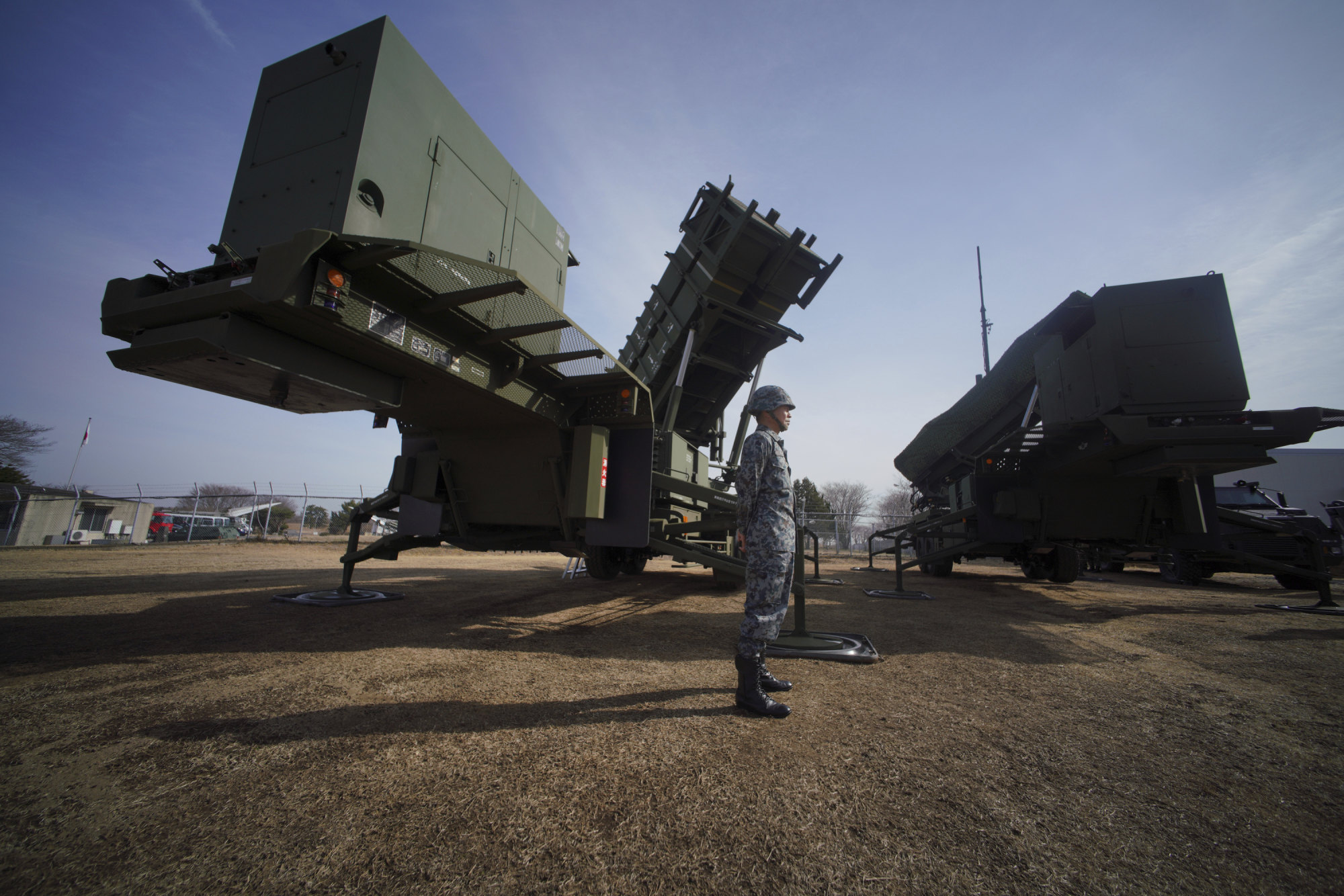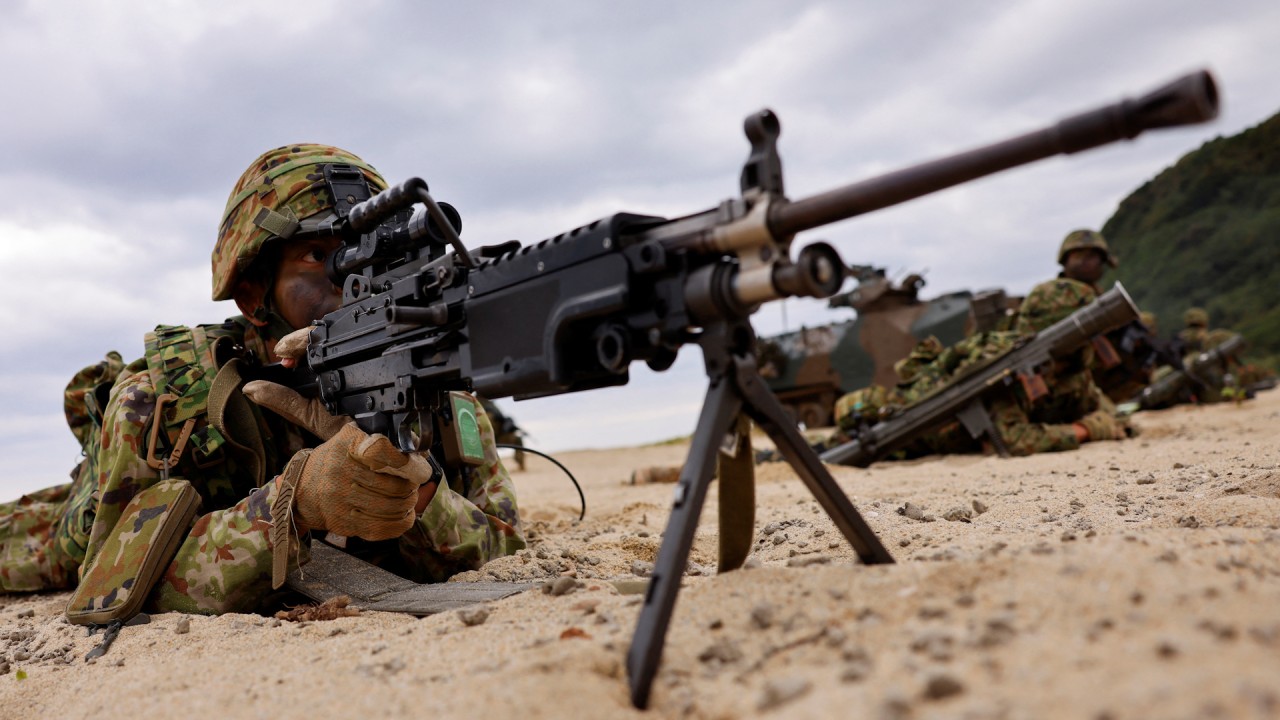As Japan seeks ‘normal country’ status, its US Patriot missile deal, record defence budget rankle pacifists
[ad_1]
Japan top general warns with ‘jarring bluntness’ country’s security is at stake
Japan top general warns with ‘jarring bluntness’ country’s security is at stake
That same day, Tokyo approved a request from Washington for the production of Patriot surface-to-air guided missiles in Japan under an American licence and the sale of these weapons to the United States, reportedly to make up for the superpower’s decreasing inventory.
Ryo Hinata-Yamaguchi, assistant professor of international relations at the University of Tokyo, said Tokyo faces several dilemmas over its enlarged defence budget. Among them, the government has to pay greater attention to social welfare amid growing calls for more spending in this area due to the country’s ageing population.
The export of Patriot missiles to the US is vital in boosting Japan’s defence industry and the Japan-US defence equipment supply chain, Hinata-Yamaguchi said.
“Both of which will have a positive impact not only on international security but also Japan’s defence,” he added.
Noting the strong reactions from Russia, China and North Korea over the Patriot sale, Hinata-Yamaguchi said the Russian reaction was expected given Moscow’s warning last week of “grave consequences” after Japan had agreed to supply the missiles to the US.
Moscow has warned that Japan would “lose control over the weapons with which Washington can now do whatever it wants” and that the missiles could end up in Ukraine amid the European nation’s ongoing war with Russia.
Ryosuke Hanada, a Sydney-based security analyst, said the best and only option for securing Japan’s long-term defence budget is to revitalise its defence industry and levy taxes on its profits. The sale of Patriot missiles to the US is “a good starting point”, said Hanada, who is a doctoral student in the department of security studies and criminology at Macquarie University.
“In the short and medium term, the government has to raise both corporate and individual taxes as well as cut expenditure for social welfare, which [constitutes] 33.6 per cent [of overall spending] in financial year 2024,” Hanada said. “This requires the determination to make controversial political decisions.”
‘Unfit’: knives out for Japan PM Kishida as fundraising scandal widens
‘Unfit’: knives out for Japan PM Kishida as fundraising scandal widens
But the revised arms-transfer policy guidelines were still “restrictive” given the objections from some factions in Japan’s parliament, he added.
Komeito, the junior coalition partner of the ruling Liberal Democratic Party, has been hesitant to support the easing of restrictions on Japan’s defence exports, concerned that such sales could exacerbate armed conflicts worldwide and run counter to the country’s post-war pacifist constitution.
Despite the lack of political consensus within the ruling party over the tax increases, Hanada said there are still other ways that Tokyo could fund the enlarged defence budget, such as through financial surpluses, non-tax revenue and expenditure reforms.
For instance, 1 trillion yen (US$6.9 billion) could be covered by the 2022 surplus from the Foreign Exchange Fund Special Account – used by Japan for interventions in foreign exchange markets – Hanada said, citing a recent finance ministry announcement.

Satoru Nagao, a non-resident fellow at the Washington-based Hudson Institute, said that the impact on Japan-Russia relations is expected to be minimal over the Patriot sale.
While the missiles are lethal weapons, Japan will be providing them to the US and not Ukraine. Even in the event of the US supplying the missiles to the war-torn country, Nagao said there would still be no “direct trade” between Japan and Ukraine.
Since the start of Russia’s war on Ukraine, Tokyo has aimed to support Kyiv by providing non-lethal equipment such as helmets, bulletproof jackets and anti-mine sweepers.
Supplying Patriot missiles to the US also means Japan could provide lethal weapons to other countries at some point, including Australia, India and Southeast Asian countries, Nagao said.
Under Japan’s Official Security Assistance framework, which was launched in April last year, Tokyo said it would donate military equipment to the Philippines, Bangladesh, Malaysia and Fiji, with Vietnam and Djibouti set to be the next recipients.
Eyeing ‘if Trump’ scenario, Japan must commit to its own defence
Eyeing ‘if Trump’ scenario, Japan must commit to its own defence
Such weapon supplies are important in strengthening Japan’s security cooperation and long-term relations with other countries, Nagao said.
It will also be a crucial step towards Japan recalibrating the “military balance”, given the increasing defence collaboration between Russia, China and North Korea, according to Nagao.
The Patriot deal has drawn objections from pacifist groups, academics and opposition lawmakers as they have said that producing the missiles is tantamount to “killing humans”, Nagao said.
Japanese Defence Minister Minoru Kihara has said the deal would boost Japan’s military alliance with the US and the country’s overall stability.
It also underscores Japan’s opposition against any attempts at changing the status quo of the international order, Kihara said, in comments seen as referring to Russia’s invasion of Ukraine.
“Japan is in the process of becoming a normal country, but there is still a long way to go,” Nagao told this Week in Asia.
[ad_2]
Source link






